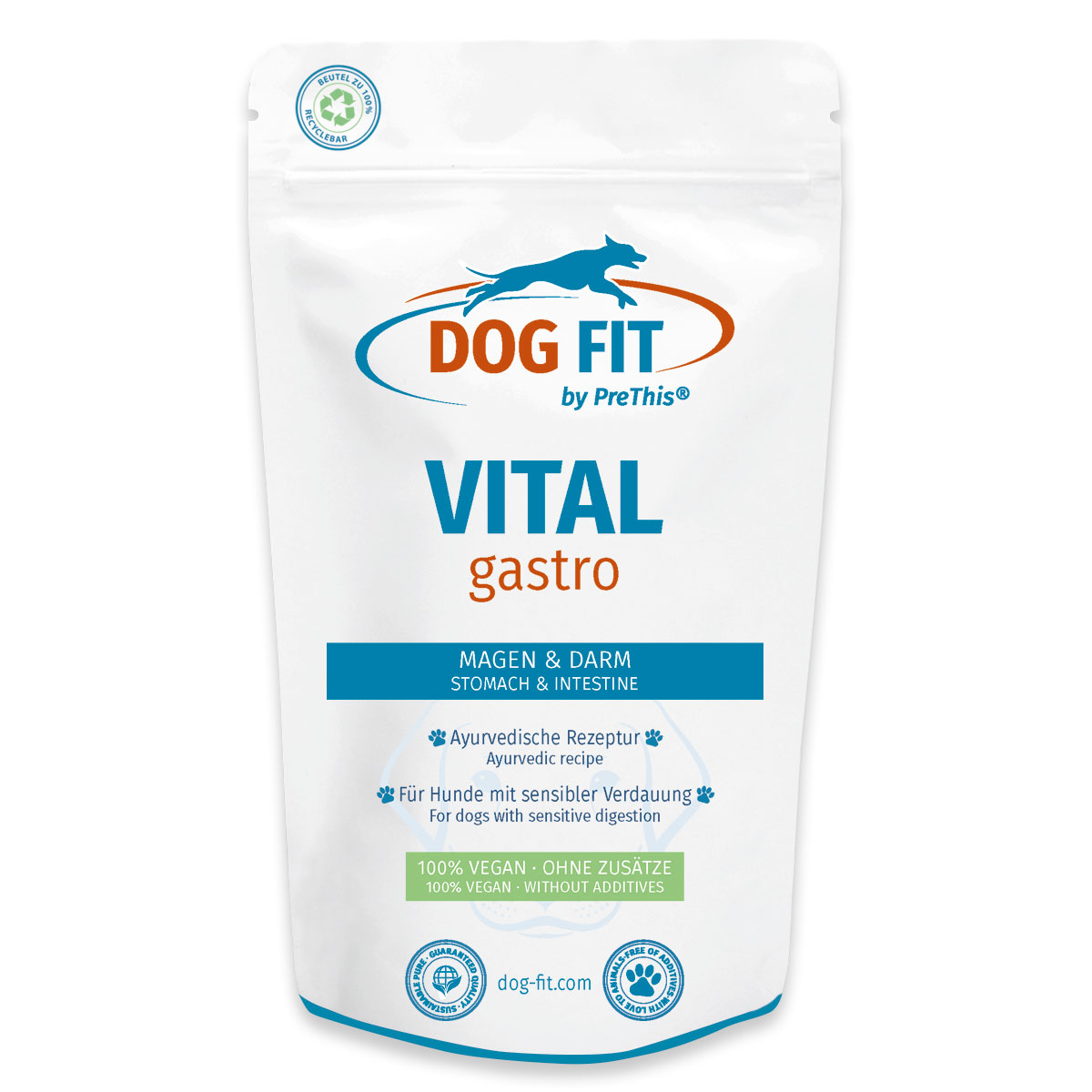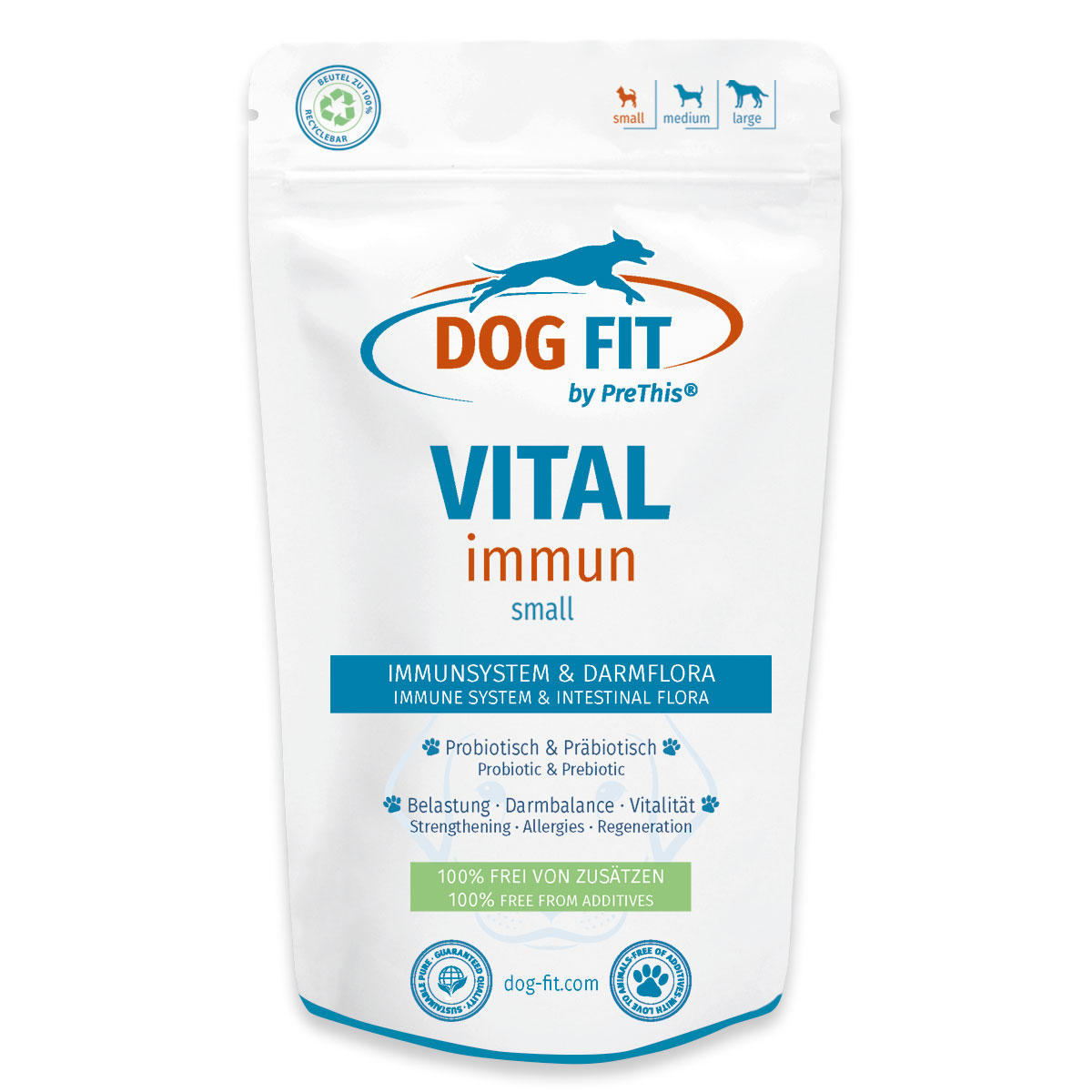Diarrhea & soft faeces in dogs
Digestive Problems in Dogs – Overview
Diarrhea and soft stools are among the most common digestive problems in dogs. These complaints can occur both acutely and chronically and can have a negative impact on your dog’s well-being. The causes are diverse and range from nutritional factors and environmental influences to medical triggers.
Possible Causes of Digestive Problems
Diet & Food Quality
Diet plays a central role in a dog’s digestion. Dogs are naturally carnivores. If they are consistently fed foods that contain high levels of carbohydrates, fillers, or artificial additives, this can impair their natural digestive function. Poor protein sources or unclear ingredient declarations are additional risk factors. Dry food with a low moisture content, in particular, can challenge digestion and lead to the food staying in the intestines for longer.
Food Intolerances & Allergies
Food intolerances and allergies are common in dogs. Triggers are often certain protein sources, grains, or additives. Disturbed intestinal flora—for example, after a change in diet or stress due to illness—can also lead to digestive problems. Since the intestines influence a large part of the immune system, disorders here often affect general well-being.
Influence of medications
Certain medications, such as antibiotics or worming treatments, affect not only harmful but also beneficial bacteria in the digestive tract. Administration of such medications can lead to temporary digestive disturbances. Gently stabilizing the intestinal flora is then advisable.
Other triggers
Stress, changes in environment, parasite infestation, or eating unsuitable foods can also temporarily impair digestion. Especially with young, older, or sensitive dogs, a veterinarian should always be consulted if problems persist for a long time.
What dog owners should pay attention to
- Pay attention to sudden or prolonged changes in stool (color, consistency, frequency).
- Observe for other symptoms such as vomiting, fever, or lethargy.
- Provide an adapted, high-quality diet and pay attention to the tolerance of new food ingredients.
- Always seek veterinary advice if symptoms persist or if you are unsure.
Importance of intestinal flora and nutrition
An intact intestinal flora is important for the dog’s digestion and immune system. After stress such as medication or diarrhea, a balanced diet can help restore balance. Carefully selected micronutrients and a customized diet support normal digestive function and well-being.
General advice on observation and prevention
Dog owners should carefully monitor any changes in their dog’s behavior, appetite, or well-being. Prompt veterinary consultation is particularly advisable in cases of persistent diarrhea, bloody stools, fever, or other symptoms of illness. Regular monitoring of the dog’s general condition, adjusting exercise, and providing fresh water are also important components of dog health. Responsible handling contributes to maintaining the dog’s long-term well-being and zest for life.
Every day with your dog holds both small adventures and big moments. With patience, care, and an open mind for your four-legged friend’s needs, you can strengthen your bond and provide security. This way, your life together remains full of trust, joy, and shared discoveries—for a wonderful time together.


